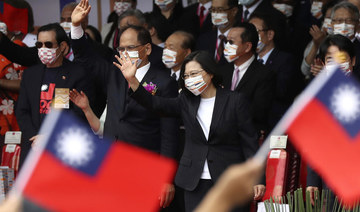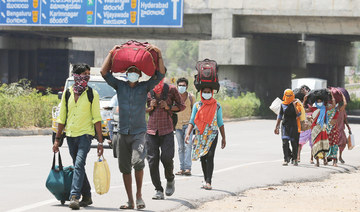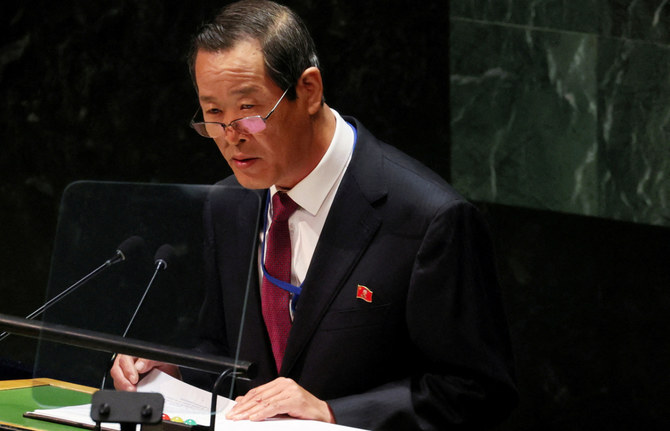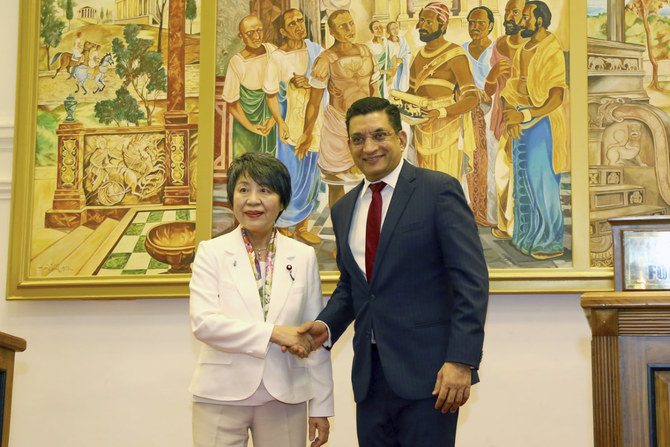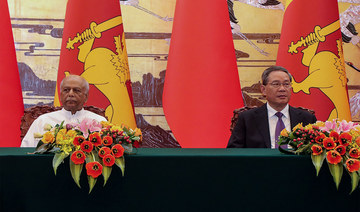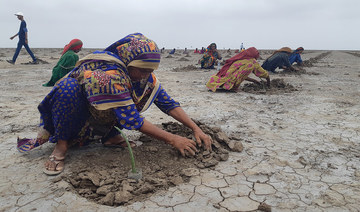NEW DELHI: Days after China issued an “unprecedented” advisory asking Indian media not to cover Taiwan’s National Day on Saturday, an official from the ruling Bharatiya Janata Party (BJP) pasted posters in front of the Chinese embassy in New Delhi congratulating Taipei on the occasion.
“The poster was in reaction to the Chinese guidelines issued to the media. Who is China to dictate to the Indian media?” Tajinder Pal Singh Bagga, a BJP spokesperson, told Arab News.
“If China thinks it can dictate terms to India, then such a befitting reply was needed. India is a democracy and not a dictatorial communist nation like China, and here people have a voice, and they do what they want to do,” he said.
Delhi police removed Bagga’s posters soon after they went viral on social media.
However, the police's spokesperson refused to comment on the “routine” move when contacted by Arab News on Saturday.
It follows a strongly worded letter by China on Wednesday after several media houses published advertisements to mark Taiwan’s National Day on Oct. 10.
“All countries that have diplomatic relations with China should firmly honor their commitment to the One China policy, which is also the long-standing official position of the Indian government,” excerpts from the Chinese Embassy’s letter said.
The letter urged Taiwan that not be referred to as a “country” or as the “Republic of China,” or its leader as “president,” and added: “We hope Indian media can stick to the Indian government’s position on the Taiwan question and not violate the One China principle.”
Bagga, however, said that China’s warning was not directed at the media but India itself.
“The letter to the media does not mean media; it means India. The poster was a kind of protest, not as a member of a party but as an individual who loves India.”
Experts see Indian media’s coverage and the posters outside the embassy as a reflection of “the current Indian sentiment.”
“The official Indian position on Taiwan is not changing, but there is certainly debate in India about whether it should change,” Harsh V. Pant, a foreign policy expert at the New Delhi-based Observer Research Foundation (ORF), told Arab News.
“It also shows China needs to be aware of this kind of sentiment in India, that there are people now who are willing to take this kind of risk. There is a larger negative backlash against the communist regime. These kinds of episodes are symptomatic of underlying churn in India,” Pant said.
As far as the BJP is concerned, he said that the party’s parliamentarians and leaders have been “reaching out to Taiwan in its individual capacity,” with some attending the virtual swearing-in ceremony for Taiwan President Tsai Ing-wen.
On Thursday, the central government told China that the Indian media was able to cover issues in its own way.
“There is a free media in India that reports on issues as it sees fit,” External Affairs Ministry Spokesperson Anurag Srivastava said at a press conference.
Some journalists, however, called out the Chinese embassy letter.
“It is unprecedented and aimed at restraining Indian media . . . and reasserting aggressive China against India’s outreach to the western alliance against the communist regime,” Manish Kumar Jha, a Delhi-based journalist covering defense and foreign affairs told Arab News.
“I strongly believe that the Indian media must continue expressing freely on any matter in our dynamic democratic setup.”
New Delhi and Taipei do not have fully fledged and formal diplomatic relationships, but both share close business and cultural ties.
Both opened their first representative offices in each other’s countries in 1995.
The relationship between India and China has been tense since May this year when both countries clashed along the disputed Himalayan border region in Ladakh.
Matters took a turn for the worse after the killing of 20 Indian soldiers on June 15 when both countries exchanged blows for the first time in 45 years.
And while talks are continuing to de-escalate tensions between the two neighbors, there seems to be no end in sight to the conflict.
“The border issue, of course, has created more anger in Indian civil society. But I don’t see the statement by the Chinese embassy on Indian media being linked to the border issue. This is a part of a broader approach to diplomacy wherein Chinese diplomats and media seek to shape narratives in other countries actively,” Manoj Kewalramani of the Bangalore-based think-tank, the Takshashila Institution, told Arab News.
“I don’t think Beijing believes that Delhi is anywhere close to abandoning the one-China policy. And I don’t think the Indian government is seriously considering such a possibility,” he said.
Pant disagrees and says that China should instead focus on the negative perception of the communist regime within India, which is on the rise, with people feeling “pretty angry.”
“If China continues on its disruptive path where it does not recognize India’s interests at all, then most Indians today are pretty angry. There is a shift in Indian people’s perception of China, which is extremely negative. By focussing on official Indian government’s stand, China must be missing something substantial which is happening in India where public opinion is as negative as it can be.”




